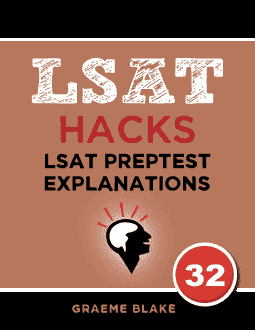QUESTION TEXT: Every moral theory developed in the Western…
QUESTION TYPE: Most Strongly Supported
FACTS:
- All moral theories in the Western tradition try to tell us what the good life is.
- But most people would think that anyone who actually follows the theories’ ideas is not living the good life.
ANALYSIS: This seems to say that people think saints are boring. Or something like that. People’s idea of the good life is different from the good life described in moral theories.
___________
- We don’t know if this is true. It could be that most people instead don’t believe that the theories actually do describe the good life.
- Actually the stimulus shows us that the moral theories all have something in common: people think they don’t actually tell us how to live the good life.
- CORRECT. People do not see any of the theories as matching their idea of “the good life.”
- People seem to think that these theories do not describe the good life even when they are followed exactly.
- Maybe a theory outside of the Western tradition could describe the good life.

Free Logical Reasoning lesson
Get a free sample of the Logical Reasoning Mastery Seminar. Learn tips for solving LR questions


Regarding answer choice A, is it fair to say on MBT and MSS answer choices that words like “better” or “worse,” when no such inherent ranking in the stimulus is given = automatic dis-qualifier? Is a judgement inference of any kind ever valid? If the stimulus discusses “known to be unhealthy and bad for you fried chicken” and a person doesn’t want to eat the chicken, can “preference for better fried chicken” be inferred or can you only ever keep rejection (and acceptance) at face value? Maybe they want even worse fried chicken?
In the case of answer choice A, that’s correct. The stimulus here only gives us the states “(living) good life” and “not living good life”. We’re not told anything about the different states that fall in between these two, nor are we told anything that goes beyond a good life, as described in the answer choice.
Judgement inferences can be valid. But in the fried chicken example, “better fried chicken” comes out of nowhere. The stimulus only tells us fried chicken is unhealthy and bad for us. Consider this:
Stimulus: “Fried chicken is the unhealthiest thing in my fridge right now. I’m starting to care about my health, so I will eat the carrot sticks instead.”
In this case, we can infer that the carrot sticks are “better” than the fried chicken. But I don’t think you should use the word “better” in the prephrase. It’s better to infer “the carrots are less unhealthy”.